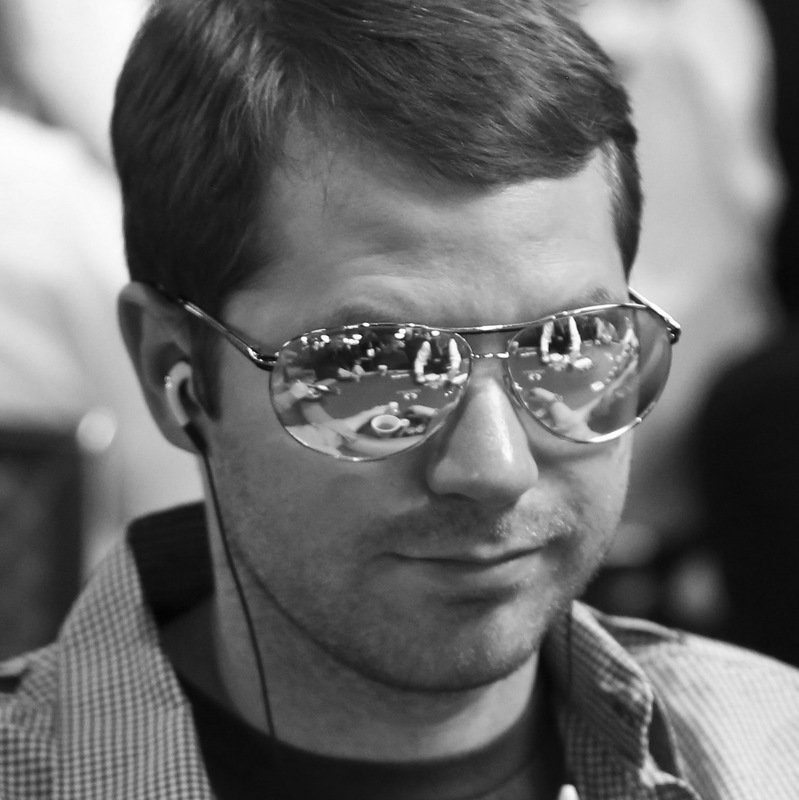






The Slowrollby Jonathan Little | Published: Nov 21, 2018 |
|
|
This article was initially published on my blog at JonathanLittlePoker.com, but I think it is so important that I am publishing it here as well.
There has been a rash of slowrolling on televised poker recently, so let’s discuss it!
Slowrolling is when someone knows they have the best hand either at the showdown or when facing a final bet, but they act as if they have the losing hand before eventually revealing the winner. Notice that slowrolling is different than a nitroll, which is when the winning player does not know they have the best hand.
While slowrolling has no impact on the game (because the best hand always wins at the showdown), it causes some players to get angry because they thought they were going to win the pot, but instead lost. Many people view slowrolling as a personal attack and get angry, often resulting in sub-optimal play or raging tilt.
If you get angry when someone slowrolls, you need to do some soul searching.
Why does it bother you? Perhaps you don’t like thinking you won and then having that money “taken” from you. Obviously though, that money was not yours, and winning or losing individual pots does not matter in the least bit in the long term.
Why should it bother you if someone takes a few extra seconds to reveal their hand? It should not (besides the fact they are slowing down the game). You are allowed to take as long as you want with your hands. There is no rule that states you must table your hand immediately when you have the nuts, and there should not be, because many players don’t even know when they have the nuts.
Why should you care if someone “attacks” or “targets” you? You should not. If you take things personally in poker or life, you will find yourself playing into your attacker’s plan. Realize that in poker, your opponents are out to beat you. It is their job to utterly destroy you. Many players will use every trick within the rules to beat you. It is not unethical to do so. It is their job.
As far as I know, people slowroll for three reasons:
They are playing in a casual game with their friends and want to create good-natured excitement and drama.
They think their opponent will go on tilt.
They know they go on tilt when someone slowrolls them, and assume their opponent must have the same thought process.
For Fun
If you are playing in a fun, casual (often small stakes) game where everyone is having a good time, a slowroll is not malicious at all. Get over it. For what its worth, I have only slowrolled in this manner and even then, very rarely.
To Tilt You
If someone thinks you will go on tilt due to being slowrolled, that is excellent information for you to have. They are essentially announcing to everyone that they think you care about the money and that you do not understand that poker is a math game. Knowing this, you can adjust your strategy to take advantage of their assumptions.
Because They Would Tilt
If you are a strong player, and most everyone knows you are a strong player, and someone slowrolls you, it essentially says that the slowroller would go on tilt if they were slowrolled and they are trying everything within their power to get an edge on you. Of course, this is futile because you know that it does not matter if someone slowrolls. This is excellent information to have because it shows the slowroller does not understand that poker is a math game and may be playing too large for their bankroll. I especially like being slowrolled in this manner because it lets me know a lot about my opponent’s mindset.
How to React
Instead of getting angry when someone slowrolls you, your reaction should be to figure out why they slowrolled you and then to adjust accordingly. Going on tilt, getting angry, or starting a fight are not viable options. Remember, your opponent wants you to go on tilt. If you go on tilt, you justify their slowroll. If you do not go on tilt, you completely nullify their strategy.
If the slowroll is for fun, have fun with it. You are playing for fun!
If the slowroll is to try to tilt you or if it was done because it would tilt the slowroller, you have two reasonable options (again, there may be more).
Observe it and then do nothing. Act as if nothing happened (because in reality, nothing happened). This will often make the slowroller feel silly and look like an idiot to everyone else at the table. I enjoy making malicious players look like idiots.
Act as if you are on tilt. I cannot get away with this because most everyone knows there is a zero percent chance that I go on any meaningful form of tilt, but if you are a recreational player, it can be a powerful strategic adjustment. When people go on tilt, they usually bluff way too often, leading their opponents to hero-call more often. So, adjust your range (especially for large bets) such that it contains fewer bluffs and more value hands. Easy game! Of course, this adjustment relies on you being able to act as if you are on tilt while not actually being on tilt, and also requires you to make some hands in the near future. If you do not make any hands, you can simply sit there and play conservatively for an hour or so.
Summary
Slowrolls do not matter. Don’t let them bother you. If anything, they let you into the mind of your opponent, allowing you to make better decisions. Free information should be valued, not despised. ♠

Jonathan Little
Features
The Inside Straight
Strategies & Analysis